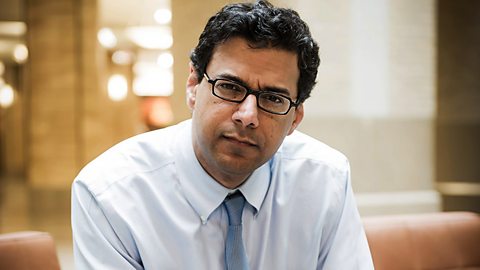The third in a
series of posts detailing those resources I’m finding useful on my own particular (life) journey.
Meta
I think these lectures – and the thinking behind them – are extraordinary.
I listened to them in the car on a couple of long journeys.
I’ve recently started reading Atul’s personal exploration ‘
Being Mortal: Illness, Medicine and What Matters in the End’. It’s also excellent, and timely for me to read it.
The List
The rationale
I read Atul Gawande’s book ‘
The Checklist Manifesto’ and loved it.
I thought it common sense but which hasn’t be common practice, until Dr Gawande’s efforts to improve global public health.
I was therefore delighted to learn that he would be delivering the BBC’s Reith Lectures.
I’ve copy-pasted
the following info from the BBC’s website to save time etc.
Dr Atul Gawande - 2014 Reith Lectures
Atul Gawande, MD, MPH is a practicing surgeon at Brigham and Women's Hospital and Professor at both the Harvard School of Public Health and Harvard Medical School.

In his lecture series,
The Future of Medicine, Dr Atul Gawande will examine the nature of progress and failure in medicine, a field defined by what he calls 'the messy intersection of science and human fallibility'.
Known for both his clear analysis and vivid storytelling, he will explore the growing importance of systems in medicine and argue that the future role of the medical profession in our lives should be bigger than simply assuring health and survival.
The 2014 Reith Lectures
The first lecture,
Why do Doctors Fail?, will explore the nature of imperfection in medicine. In particular, Gawande will examine how much of failure in medicine remains due to ignorance (lack of knowledge) and how much is due to ineptitude (failure to use existing knowledge) and what that means for where medical progress will come from in the future.
In the second lecture,
The Century of the System, Gawande will focus on the impact that the development of systems has had – and should have in the future - on medicine and overcoming failures of ineptitude. He will dissect systems of all kinds, from simple checklists to complex mechanisms of many parts. And he will argue for how they can be better designed to transform care from the richest parts of the world to the poorest.
The third lecture,
The Problem of Hubris, will examine the great unfixable problems in life and healthcare - aging and death. Gawande will argue that the reluctance of society and medical institutions to recognise the limits of what professionals can do is producing widespread suffering. But research is revealing how this can change.
The fourth and final lecture,
The Idea of Wellbeing, will argue that medicine must shift from a focus on health and survival to a focus on wellbeing - on protecting, insofar as possible, people’s abilities to pursue their highest priorities in life. And, as he will suggest from the story of his father’s life and death from cancer, those priorities are nearly always more complex than simply to live longer.
The Task
Atul Gawande strikes me as an outstanding role model.
Our challenge is to rise above our everyday conditioning and aim to be as good as Dr Gawande in the things that we are passionate about, and which bring us to life.
It’s easy to quote Ralph Waldo Emerson
"Do not go where the path may lead, go instead where there is no path and leave a trail."
The tricky bit is sailing towards the horizon and not knowing where you're going. It's spectacularly more difficult than you might expect...
As one of my Mentors said to me:
"Justin, it's not about leaving A to get to B, it's about leaving A"
Thank you Steve!
Goodreads
I endeavour to record what I’m reading via
my profile on Goodreads.



